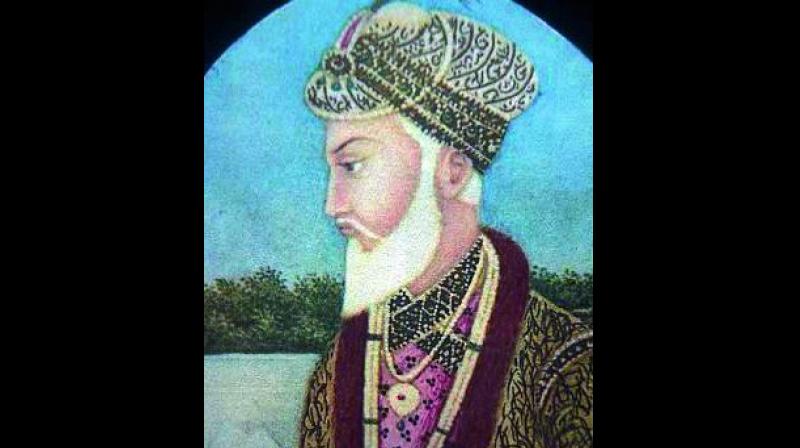Hyderabad to alter Mughal story; old records tell many new stories

Hyderabad: A revision in the history of Mughal administrative practices could be in store as researchers in Hyderabad found a treasure trove of 1.55 lakh documents dating back to the rule of Shah Jahan and Aurangzeb. The documents written in Persian are in the possession of the Telangana State Archives and Research Institute (TSARI). They present a graphic picture of Mughal mansabdari (administrative system, rank and position) and jagirdari systems (feudal land grant, revenue etc) and other aspects of administration, military, revenue, social and diplomatic affairs.
While Shah Jahan period documents number about 5,000, the rest of 1.50 lakh belong to Aurangzeb rule. Shah Jahan ruled between 1626-1658 AD and Aurangzeb 1658-1707 AD.
Translation of these manuscripts from the collection of imperial orders or yaddasht-i-ahkam-i-muqaddas brought to light several interesting nuggets. One of such orders dating back to 1662 CE states Jan Sipar Khan, a Mansabdar in Zafarabad Suba, was punished for dereliction of duty. The order accuses him of going out of the fort for hunting deer without completing his task of making an iron rocket and sacks him from the post of Qiladar. His rank was also demoted by 200 sawars.
Despite being a puritan, Aurangzeb was known to be a no nonsense administrator. The reference to attempts of making iron rockets could require further investigation. However, the invention of rudimentary rockets was credited to Hyder Ali and his son Tipu Sultan, whose army first deployed them against the British during the Anglo Mysore wars between 1780 and 1792.
“The emperor promptly acted on petitions. It was accepted or rejected. Wh-enever the emperor received reports of negligence, carelessness which were against government rules and regulations, punishment was meted out,” Dr Zareena Parveen, director of Tsari, told this newspaper. Another document dating back to 19th Rajab 1087 Hijri or September 18, 1676 records Mukhtar Khan, the Nizam of Khandesh, dismissing one Ziauddin, a son of Sirajuddin, and Kotwal Muhammed Hussain, the son of Muhammad Saeed, for consumption of alcohol while on duty. Though they repented before a Qazi, Aurangzed rejected their mercy plea.
“All the orders written on hand-made paper are in old Persian using the Shikasta script — a cursive style of writing,” said M A Moeed, a senior Research Assistant, who is translating the documents. The institute has hired Persian scholars to translate these documents. “We have catalogued 40,000 odd documents so far and the work is still on,” Dr Parveen said. She said that no other state archives or even National Archives of India based in New Delhi has such a large volumes of documents relating to the Mughal era.
Besides Dr Praveen, who herself is a Persian scholar, several scholars like Dr M.A. Nayeem, Mohd Ziauddin Shakib, Dr Dawood Ashraf, Dr Azam-ul-Hussaini have helped in translating the documents. There is an interesting story behind the discovery of these records also. In 1916, Maulvi Syed Muhibuddin, the accountant-general of Hyderabad State, found these documents lying in the Fort of Arak when he was on an inspection tour to Aurangabad.
Aurangabad was the capital of Aurangzeb’s Deccan province. It had become the de facto capital of the Mughal empire, when Aurangzeb camped there during his last days to fight the Marathas. After realising the importance of these documents, Maulavi Syed Muhibuddin informed this to Syed Khurshid Ali, then Superintendent of Daftar-i-Diwani. The government swung into action and shifted the papers to Daftar-i-Diwani in Hyderabad, which is now the Telangana state archives.

